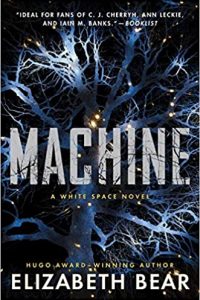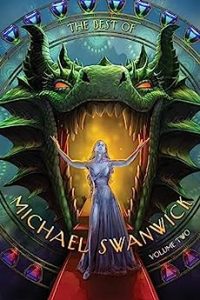Ian Mond Reviews Concerning Those Who Have Fallen Asleep: Ghost Stories by Adam Soto
 Concerning Those Who Have Fallen Asleep: Ghost Stories, Adam Soto (Astra House 978-1-66260-135-4, $17.00, 272pp, p) September 2022
Concerning Those Who Have Fallen Asleep: Ghost Stories, Adam Soto (Astra House 978-1-66260-135-4, $17.00, 272pp, p) September 2022
My initial reaction to “Polyptych for the Beginning of the End of the World, or Three Beginnings for the End of the World and a Play”, was that it was a poor choice of story to open Adam Soto’s debut collection, Concerning Those Who Have Fallen Asleep: Ghost Stories. As an experimental, baffling piece that portrays the beginning of three individual apocalypses (by plague, by earthquake, by drought) and includes the random notes for a play featuring a ghost, it does very little to prepare the reader for the stories to come, none of which are as remotely idiosyncratic. It’s a reaction that stayed with me until I reread the story and realised that the piece not only epitomised Soto’s radical approach to fiction – something I noted when I reviewed his tremendous debut novel This Weightless World, which doesn’t so much as subvert but reinvent the first contact narrative – it also captures the essence of the collection: where no two stories have the same shape or texture, but where each of them says something profound (and sometimes provocative) about the human condition.
Despite the collection’s subtitle, and aside from the title story (“Concerning Those Who Have Fallen Asleep”) and one other tale (“Wren & Riley”), ghosts are rarely central to the narrative of the thirteen assembled stories. Instead, they are a blink-or-miss reference that evokes the residual memories that linger around old places (“The Vegetable Church”), the casual attitude toward death in a third-world country (“The Box”), or a metaphor for AI bots and algorithms publishing new works of fiction by a deceased author (“Death on Mars”). Even when the ghosts are literal, such as those that populate a local park (“YA”) or haunt the survivors of the American Civil War (“Immanuel”) or continue to ride the elevators of a building months after a mass suicide event (“The Prize”) they are peripheral to the main events of the story. Soto, however, recognises that the best ghost stories aren’t so much about ghosts as they are about the passage of time, the way traumatic or world-shaping events leave a stain on the present. “Immanuel”, Soto’s remarkable and heart-wrenching Civil War tale, eerily imagines this as an “odd set of footprints in the dining porch that no one could recall setting down and that could never be swept away.”
The passage of time plays an integral part in stories like “The Vegetable Church”, “YA”, and “Ransom”. In “The Vegetable Church”, a Syrian refugee recalls her teenage years in Germany, where she and her sister were taken in by a French family, and the love triangle that transpires across the hallway between her next-door neighbour Meta and the two men in her life. Here, there are multiple ghosts: of a father, mother, and older sister lost in Syria; and for Meta, the arrival of Lou, who served with her husband in Iraq, and whose presence brings back anguished memories of past love and pain. The magnificent and bookish “YA” sees two literate sixteen-year-old boys, Mikhail and Felipe, who enjoy arguing about their three favourite books (“Mikhail makes a case for Don Quixote, Ulysses and, maybe, Infinite Jest”) assist in the development of software that will “compose novels at a faster rate.” In the story’s second half – set a decade later – we discover that Mikhail and Felipe’s story (and the unrealised sexual tension between them) has been co-opted into a novel written by the AI they helped develop. “Ransom” is a lively dark comedy set in Mexico involving a washed-up actor, multiple kidnappings and infidelity. Maybe more than any other piece, “Ransom” is the one that most effectively shows how ghosts from the past, particularly the legacy left by two domineering fathers, can leave their mark on the present.
The inconstant movement of time, where decades can dissolve between a paragraph break, is also a feature of the collection’s title story. “Concerning Those Who Have Fallen Asleep” takes place during the Spanish Flu and centres on a tailor, his daughter, and a returned soldier, with several key scenes set in 1941 before America entered the Second World War. The story’s emotionally complex portrayal of tragedy and death is enhanced when you realise, via the most subtle cues, that parts of the tale occur in the afterlife. Past tragedy also features heavily in “Wren & Riley”, which involves the friendship between three Indigenous American women that splits apart when the titular Wren leaves New York to live with the titular Riley. The horror here is more overt, with Soto’s vivid depiction of New York’s bohemian culture in the mid-1970s making way for a dark, grisly tale of domestic abuse and a vengeful wraith in rural Wyoming.
The mordant “Death on Mars” is the collection’s one science fiction story. Like in his novel, Soto sidesteps the expectations that come with fiction set on the red planet and presents us with a Mars colonised by the obscenely rich where a deathless experience is “a basic human right. You could die when you choose to, but no one had yet.” Over a century old, Strom Mettel has decided to be the first person in decades to die on Mars, hoping it will start a trend. This story, which hilariously includes AI bots writing BDSM pornography in the style of Strom’s father, had me craving an entire collection of science fiction by Adam Soto. But then again, if I’ve learned anything from Concerning Those Who Have Fallen Asleep: Ghost Stories, I’ll read anything Soto writes.
Ian Mond loves to talk about books. For eight years he co-hosted a book podcast, The Writer and the Critic, with Kirstyn McDermott. Recently he has revived his blog, The Hysterical Hamster, and is again posting mostly vulgar reviews on an eclectic range of literary and genre novels. You can also follow Ian on Twitter (@Mondyboy) or contact him at mondyboy74@gmail.com.
This review and more like it in the January 2023 issue of Locus.
 While you are here, please take a moment to support Locus with a one-time or recurring donation. We rely on reader donations to keep the magazine and site going, and would like to keep the site paywall free, but WE NEED YOUR FINANCIAL SUPPORT to continue quality coverage of the science fiction and fantasy field.
While you are here, please take a moment to support Locus with a one-time or recurring donation. We rely on reader donations to keep the magazine and site going, and would like to keep the site paywall free, but WE NEED YOUR FINANCIAL SUPPORT to continue quality coverage of the science fiction and fantasy field.
©Locus Magazine. Copyrighted material may not be republished without permission of LSFF.







